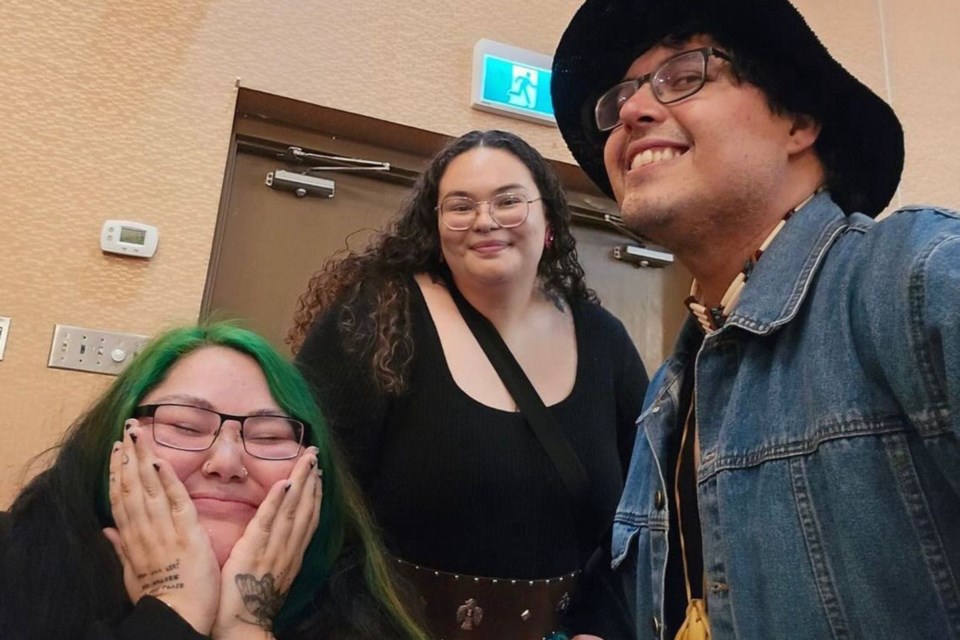TIMMINS - Following a recent autism diagnosis, an Indigenous youth is speaking out to advocate for others with similar experiences.
Katherine Jeremiah-Génier, a 24-year-old member of Missanabie Cree First Nation, has been selected to join the National Youth Advocacy Council with the Child-Bright Network.
Jeremiah-Génier, who uses they-them pronouns, applied for the council in August and underwent an interview process before learning of their selection in November.
They are one of 12 young Canadians chosen to provide input on research development and policy changes related to brain-based developmental disabilities. They have already participated in several Zoom meetings.
“Being part of the council, I want to advocate for youth who have similar experiences to me,” they said.
Diagnosed with autism in March 2024, Jeremiah-Génier has a unique perspective.
“Being Indigenous, being from a remote area where we don’t have a lot of services, and being diagnosed … as a young adult are things I can share insights on,” they said.
“If I had been diagnosed sooner, I would have had more support. I wouldn’t have been so hard on myself. I would have realized that there was nothing wrong with me — my brain just works differently.”
Reflecting on their childhood, Jeremiah-Génier said that an earlier diagnosis could have eased many struggles, such as transitioning between activities, adapting to new environments, and managing sensory sensitivities in school settings.
“It was also frustrating for my mom because my younger brother got his diagnosis a few months before I got mine. When I got mine, she said, 'I wish I could have known sooner or advocated for you better,’” they said.
Since receiving their diagnosis, they have encountered frustrating misconceptions.
“People will say, ‘Oh, you don’t look autistic,’ or ‘Girls can’t have autism,’ which is really frustrating. People need to be more open and understanding. Everyone is different and requires different tools and accessibility options to participate fully in life.”
One of the biggest challenges they see is the lack of services for young adults with autism. While there are many programs for children and their parents, support for those in their late teens and early 20s is scarce.
“I am trying to find different services for myself, and they don’t have a lot for young adults. There’s a lot for kids, but not much for us.”
As a council member, Jeremiah-Génier hopes to raise awareness of these gaps and advocate for better resources for young adults with autism. They see their appointment as an opportunity to collaborate with other passionate youth to make meaningful change.
In addition to their role with the Child-Bright Network, Jeremiah-Génier is active in several other advocacy groups, including the Nishnawbe Aski Nation Oshkaatisak Council, the Mushkegowuk Regional Youth Council, and the Missanabie Cree First Nation Youth Council.
They encourage other young people to take part in advocacy efforts.
“I think it’s important for people to use their voice because there’s someone out there going through the same thing. If you speak up, you can help others who might not feel ready to use their voice yet,” they said.
Jeremiah-Génier is also deeply involved in Quilts for Survivors, an initiative founded by their mother, Vanessa Génier. As the studio manager, they have played a significant role in sewing and organizing the distribution of quilts to residential school survivors.
Jeremiah-Génier plans to share updates on their advocacy work through their X account here.
